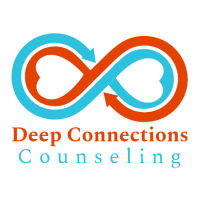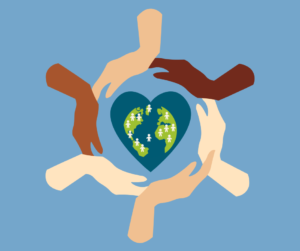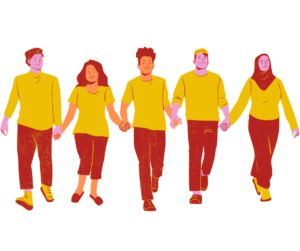Ever been in a difficult relationship, or one that has slid onto the rocks? You’re struggling, but so is someone else – your partner. Check out 3 ways to resolve the conflict and get through difficult times.
It’s actually worse than being alone because you are alone together. This is the paradox of separate-but-shared emotional pain.
To overcome a difficult relationship, good communication and empathy are essential to tackle the relationship challenges and help you rebuild trust in each other.
The reality of dealing with a difficult relationship can be divided into four possible choices:
- Deciding to leave the situation.
- Deciding to stay and change what can be changed.
- Deciding to stay, accept what can’t be changed, and live by your values.
- Deciding to stay, give up trying, and do things to make the situation worse.
If you are in a situation involving abuse — physical, mental, or substance abuse — then the first option is often the best choice. Still, it is often a hard one. So if you need help, reach out, whether to a therapist or a support program like the National Domestic Violence Hotline.
But if your situation does not involve abuse, then often the first and fourth options are simply ways of avoiding the issue rather than dealing with it. That leaves numbers 2 and 3.
Resilient Decision Making for Relationships
The (difficult) decision is to practice numbers 2 and 3 consistently, making sure to live according to your values.
Additionally, you should have goals – but be flexible with them. Be proactive and gentle with yourself and your partner.
Remember, situations do change and can be improved. However, you must actively choose your direction. Otherwise, you will end up passively going along for the ride. Not choosing only leaves the destination up to chance.
Once you start this process, you’ll begin to feel better. Because you’re playing a part in the outcome. And you’re involving those around you – even your challenging relationship – for the betterment of yourself and your partner.
But how exactly do you do that?
How to deal with a difficult relationship?
1. Practice Acceptance
Change what can be changed. Accept what can’t be changed.
Not everything can be changed.
And you don’t have any control over changing your partner’s behaviors. So you can support a partner who wants to change. But you cannot force it.
What you can do is change your behaviors. Doing so will change how your partner reacts to you.
This can be a powerful way to change existing patterns in your relationship.
2. Stay Engaged and Practice Self-Care
You should work to avoid:
- excessive worry and analysis,
- the tendency to blame and self-punish,
- giving in to escapism, such as substance abuse or casual relationships.
These releases are only temporary and will not serve your long-term purpose. It’s far better to seek calm. Embrace your deepest values. And practice self-care, relaxation, and gentleness with yourself.
Worried you’ll still be tormented by your thoughts?
Here’s the kicker! Yes, the thoughts and feelings will still continue, which can be hard. But this is because you are making choices and being responsible for them.
The mind (often relentlessly) presents alternatives — that’s what it does, it makes thoughts! But those thoughts are not always giving you the best advice.
Think of it in terms of running — the pace or intensity can become difficult, but will you win the race if you stop? Should you listen to the voice that says that it’s okay to stand aside and watch the other runners go by? Of course not. But you have to tolerate this voice. Respect, acknowledge, and then quietly deny it.
You can treat this doubting voice like a child’s whining. Be kind to it. But don’t give in to low-fi self-doubt or hi-fi tantrums that distort what is for the best. The child is not driving your car — and should not be given the wheel!
Instead, be willing to balance hard work, proactive action, and fundamental values.
3. Embrace Forgiveness
In the expanding field of Acceptance and Commitment Therapy (ACT), there is a wonderful phrase: “Forgiveness has nothing to do with someone else.”
Give yourself back clarity and clear-headedness without the smoke of confusion and bad feeling. Forgiveness is not forgetting or justifying past hurt. To reference another powerful quotation from ACT, “Nor does it involve saying or doing anything to someone else.”
Forgiveness is a performance of one. It’s also an act that requires no audience. You — alone — are completed by forgiveness.
But it can open up a path for healing and understanding that allows you to come together with your partner. And when that happens, most couples find they are in a much stronger place than ever before.
Having Trouble with Relationship Decision Making?
Working with a relationship therapist can make a big difference. This is true whether you are seeing the therapist alone or with your partner.
They will help you work through issues with your partner, manage conflicts better, and stay committed to forming a healthier and closer relationship.
Ready to give the first step? Consider trying our free 15-minute consultation with an NC or VA therapist. This way, you can ensure this is the right decision for you and your relationship. Reach out to get more information.

Kinga Gudor, PhD
Kinga is a Licensed Clinical Social Worker (LCSW) with more than 15 years of experience. She specializes in couples therapy and working with individuals from a multicultural background.











